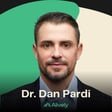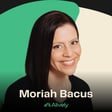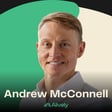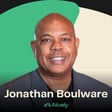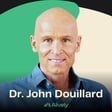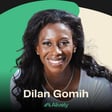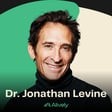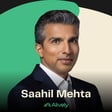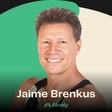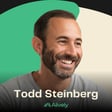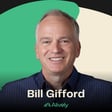
Free Yourself from Body Pain with Alex Ellis - E18
Struggling with constant pain and not knowing how to manage it can be incredibly frustrating and leave you feeling helpless. You might be waking up stiff, pushing through your day with aching muscles, and dealing with the stress that comes from not understanding your body's needs. The good news is that you don't need a medical degree to figure out how to feel better! This episode is here to change that perspective, offering simple ways to incorporate effective self-care and body maintenance into your daily routine, so you can finally move better, feel better, and live with less pain.
Alex Ellis, a self-described "body nerd", is a self-care expert passionate about helping people move better, feel better, and live pain-free. As the creator of the Movement Mavens community, Alex has built a reputation for making body maintenance practices simple. Her approach aims to shift the mindset around self-care from a medical necessity to a daily habit. With a degree in Exercise Biology, she has more than a decade of training people in body weight and stretch programs under her belt. She is also the host of her own podcast, 'The Body Nerd Show', where she encourages listeners to reject a life of aches and pains through regular, sustainable movement. Her mission in life is to teach people how to take back control of their self-care, strength and injury recovery.
“Balance is not a place that we reach. And then you're like, cool, I'm done. Right? It's dynamic and it's always changing.” - Alex Ellis
In this episode you will learn:
- How understanding and maintaining your body can prevent pain and improve overall well-being.
- The significance of incorporating small, manageable self-care habits into your daily routine and the benefits of therapy tools like therapy balls.
- Techniques like belly breathing and controlled shaking exercises to manage stress, promote relaxation, and improve sleep.
- The importance of developing intuition and self-awareness to interpret body signals and modify behavior for better health.
- The benefits of a supportive community for accountability and connection, both online and in-person, to enhance your well-being.
- Practical dietary adjustments, such as prioritizing protein intake and using low-lactose protein powders, to support a healthy lifestyle and simplify daily nutrition.
Resources
- Connect with Alex on Instagram: https://www.instagram.com/hollaformala
- Learn more about living a pain-free life with AE Wellness: https://www.aewellness.com/
- Listen to ‘The Body Nerd Show’: https://www.aewellness.com/body-nerd-show/
- Shop all the products Alex mentions in the episode: https://alively.com/products/alex-ellis
This podcast was produced by the team at Zapods Podcast Agency:
https://www.zapods.com
Find the products, practices, and routines discussed on the Alively website:
https://alively.com/

